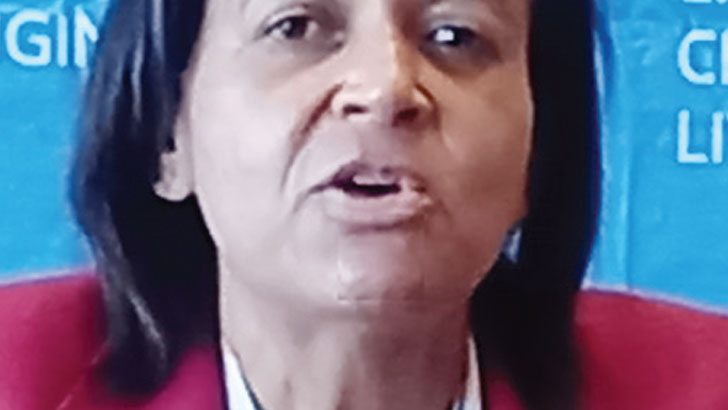WFP commits to ending hunger
World Food Programme (WFP) assistant executive director Valerie Guarnieri says the United Nations (UN) agency is committed to assisting Malawi break the cycle of hunger through resilient agriculture and socio-economic programmes.
Addressing the media in Lilongwe yesterday as she wrapped up her tour of Malawi, Guarnieri said she was impressed with achievements made in WFP’s strategic shift towards resilience that simultaneously addresses vulnerabilities and structural food insecurity.
She arrived in the country on Sunday and visited Mangochi and Balaka to appreciate initiatives the WFP is undertaking to alleviate hunger and economically empower the poor.

helping communities
Said Guarnieri: “We are helping communities to mitigate the shocks and become more productive, grow their incomes and develop assets that help to protect them in the face of emerging shocks. This is an extraordinary impact on smallholder farmers, women and girls.”
While in the country, she also held meetings with Vice- President Saulos Chilima and some Cabinet ministers, including Minister of Education Agnes NyaLonje, encouraging them to initiate dialogue on integrating social protection and resilience programmes nationwide.
Said Guarnieri: “We have also encouraged government as it opens schools safely amid Covid-19, to reintroduce school meals programme. We are committed to supporting the government as soon as it deems safe to doing so.”
National Planning Commission (NPC) board chairperson Professor Richard Mkandawire also met the WFP representative.
He said in an interview NPC was encouraged to see that WFP is running a programme known as Purchase for Progress which supports smallholder farmers with inputs and access to markets.
Said Mkandawire: “Days are gone when WFP was largely there as a relief agency. Now how do we ensure that there is also innovative interventions injected in the programmes they are running?
“For instance they have school feeding programme, how can this be integrated into or linked into agricultural productivity to ensure what learners eat in schools is from local producers that also involves entrepreneurs.”
On her part, Guarneiri said while WFP is giving inputs to vulnerable small-scale farmers, it is in turn buying the surplus household food produced for school meals programme.
She said: “I am encouraged that the school meals programme is helping to attract and maintain learners, especially girls which ensures they have the best possible start for their future as prosperous members of the community.”
Guarneiri said she was impressed to see that social protection cash transfer was helping people to buy food and to become more self-reliant.
In recent years, Malawi has faced climatic shocks having been hit by El Nino in late 2016/17 and prolonged dry spells that, coupled with the Covid-19 pandemic have left many citizens vulnerable and in need of food assistance





